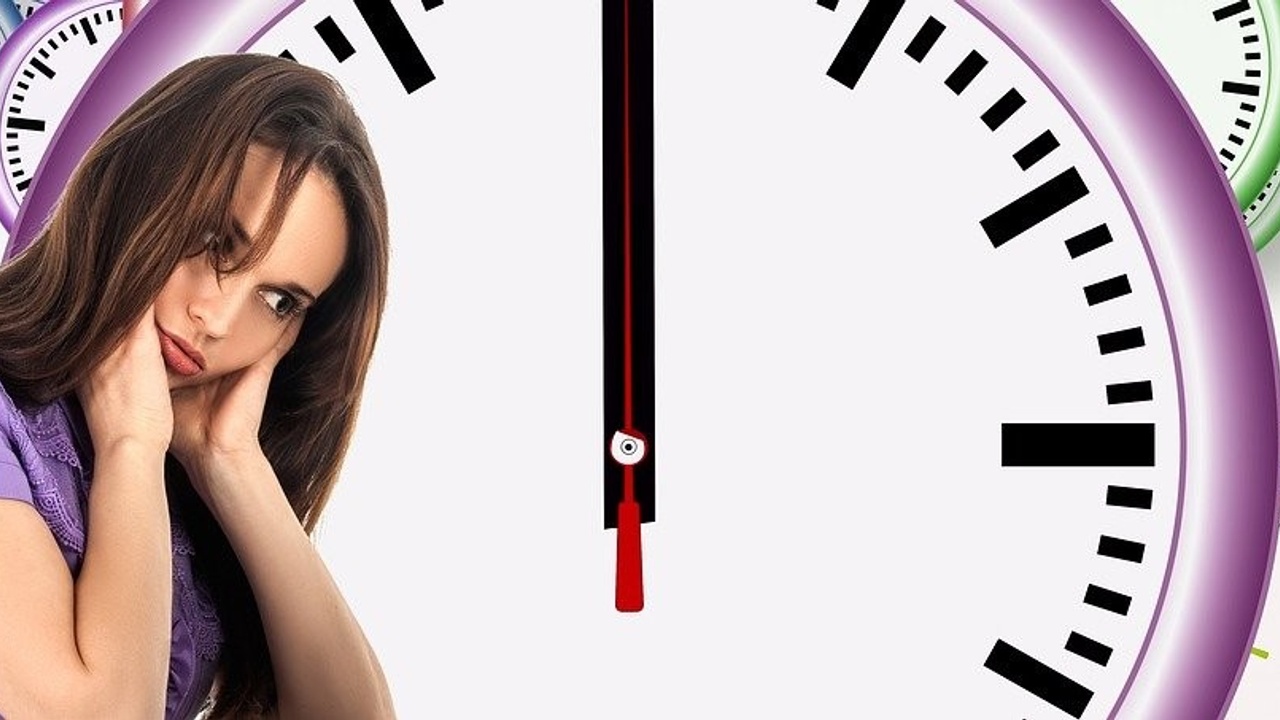
Acupuncture and Other Natural Treatments for PMS
PMS can include (but is not limited to) – irritability, anxiety, depression, breast tenderness, diarrhea, edema, headaches, body aches, fatigue, loss of concentration, changes in libido, changes in bowels, food cravings, clumsiness, bloating, insomnia, and skin eruptions.
Sounds like fun, right?
The good news is that with herbs, nutrition, and acupuncture, these issues are often fix-able.
Acupuncture for PMS
Acupuncture has been used for thousands of years to ease mental and physical tension in the body.
According to Traditional Chinese Medicine (TCM), the monthly bleeding part of the cycle is preceded by a rush of blood diverting from the Liver to the Uterus. When this happens, the Liver becomes relatively "Blood Deficient." Blood Deficiency is a similar (but not exact) concept as "anemia" in Western Medicine.
Since we treat the person, not the symptoms, every case of PMS is unique to that individual. Some of the differences may include
- Stress (one of the root causes of Qi Stagnation)
- Weak digestion or anemia (Speen Qi or Blood Deficiency)
- Advancing age, chronic illness, or over-work (Kidney and Liver Yin Deficiency)
- Pain or prolonged Qi Stagnation (Blood Stagnation)
Foods That May Aggravate PMS:
Caffeine – can cause breast pain and fibroids, anxiety, irritability, and emotional instability, consume B vitamins stored in the body, and cause you to use more energy than you have to give. Seriously, if you’re so tired that you feel compelled to drink cup after cup of coffee, you need to figure out how to get more rest because you’re wearing out your adrenal glands in the process. Craving caffeine is a sign of adrenal fatigue and also anemia (iron deficiency).
Dairy – a small amount of quality dairy (unpasteurized, full-fat) is OK as long as you’re not intolerant to dairy. If you’re experiencing symptoms of phlegm (sinus drainage, skin eruptions, manic behavior, aggressiveness), it’s a sign you should cut back.
Chocolate – a small amount of dark chocolate is good; it contains magnesium which is why we tend to crave it around the time of our periods. Too much chocolate, like most things that can be overdone, is not good. It will cause more sugar cravings and weight gain, and make you more phlegmy.
Sugar – is a frequently under-looked source of PMS. Try to cut it WAY back, if not completely out. If you’re having a hard time cutting the habit, try an herb called Gymnema.
Alcohol – affects the liver, which is the major organ we’re considering with PMS: it consumes B vitamins and minerals in the body, destroys carbohydrate metabolism and produces excessive estrus hormones. I’m a fan of using a small amount of alcohol to ease tension, but it’s a fine line between a medicinal amount and too much. If you’re not able to control that, just cut it out completely.
High-sodium foods cause edema and breast tenderness. Instead, cook your food at home with quality sea salt.
Foods That Improve PMS:
Magnesium – naturally found in whole grains, nuts, seeds, and green vegetables, most Americans are deficient in it due to stress and poor diet. Magnesium is an essential nutrient for various body functions, including your hormones.
B6 – naturally found in pork, chicken, turkey, fish, peanuts, wheatgerm, oats, bananas, and milk. B6 is an essential nutrient for hormone balance, digestion, and relaxation.
Essential Fatty Acids – naturally found in coldwater fish (and their oils) and flaxseeds and walnuts. EFAs are an important part of keeping your hormones in balance.
Cruciferous vegetables like brussel sprouts, kale, cabbage, broccoli, and cauliflower have been shown to help balance female hormones that cause PMS. I recommend eating about one cup of these vegetables, lightly cooked, at least 5 times per week.

Herbs That Help Reduce PMS
Herbs like Dong Gui, Rehmannia, Ginseng, and Bupleurum have been used for thousands of years to help with hormone balance. Here’s a link for a free e-book on how to use herbs that can help with PMS, anxiety, and depression.
Dang Gui – (angelica root) is a major herb for gynecology in Chinese medicine. Almost all gynecological formulas contain at least some Dang Gui. It nourishes your blood supply and promotes blood circulation.
Astragalus – is an herb that stabilizes your Qi. If you’re tired, have a pale and puffy tongue, this may be an important herb for you.
Bupleurum – is an herb that eases tension and promotes Liver circulation. It should only be a small portion of an herbal formula; it’s rarely taken by itself.
Ginger – is an herb that warms the blood and eases pain; ladies with heavy bleeding due to internal heat shouldn’t use it.
Peony – eases tension and blood circulation; usually combined with Dang Gui and Astragalus for overall tonification of the blood and Qi.
Licorice – is an herb that’s in most Chinese herbal formulas. It eases the digestive system and helps the adrenal (“Kidney”) function, and is usually only used in small quantities.
Mint – also encourages movement of the Qi to dispel stagnation, pain, and irritability. Too much mint will lead to dryness, so use with a little discretion, as with most herbs.
Rehmannia – an herb we add in if the patient has more deficiency signs like fatigue, poor memory, insomnia and a pale tongue (or red tongue with NO coating). Rehmannia helps your adrenal glands adapt to stress and it nourishes your Liver blood.
Chrysanthemum – an herb we would use in combination with other herbs to ease the stress on the Liver and clear heat. It’s a calming herb.
Gou Qi Zi – (gou qi berries) are also used to nourish the Yin of the Liver to help with irritability, insomnia, dry or red eyes, headaches, and fatigue.
Don't miss a beat!
New moves, motivation, and classes delivered to your inbox.
We hate SPAM. We will never sell your information, for any reason.
